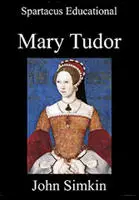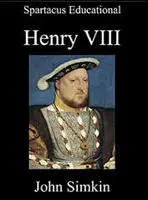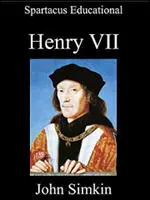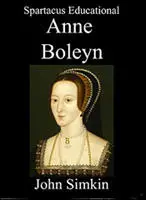Thomas Fiennes
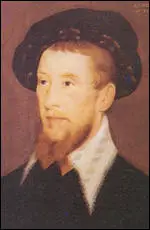
Thomas Fiennes, the son and heir of Sir Thomas Fiennes and Jane Sutton Fiennes, was born in about 1515. His mother was the daughter of Edward Sutton, 2nd Baron Dudley. His father died on 26th October 1528. He succeeded his grandfather Thomas Fiennes, eighth Lord Dacre, in 1534. His main home was Herstmonceux Castle. In 1536 he married Mary Neville, the daughter of George Neville, Lord Bergavenny. (1)
Anne Boleyn was arrested and was taken to the Tower of London on 2nd May, 1536. She was charged with having sexual relationships with Mark Smeaton, Henry Norris, Sir Francis Weston, and William Brereton, a Groom of the King's Privy Chamber. Anne's brother, George Boleyn was also arrested and charged with incest. (2) David Loades has argued: "Both self control and a sense of proportion seem to have been completely abandoned, and for the time being Henry would believe any evil that he was told, however farfetched." (3) Thomas Fiennes was a member of the jury that convicted Queen Anne and she was executed on 19th May, 1536. (4)
In October 1536, a lawyer named Robert Aske formed an army to defend the monasteries in Yorkshire. The rebels were joined by priests carrying crosses and banners. Leading nobles in the area also began to give their support to the rebellion. The rebels marched to York and demanded that the monasteries should be reopened. This march, which contained over 30,000 people, became known as the Pilgrimage of Grace. (5) Thomas Fiennes was ordered to take 200 soldiers as part of the force to be dispatched against the uprising. He was also a member of the jury that tried some of the rebels.
Thomas Fiennes, Lord Dacre
Thomas Fiennes was a trusted courtier and supporter of Henry VIII and over the next few years he was a regular member of the royal court. He attended the baptism of Prince Edward in October 1537, and bore the canopy at the funeral of Queen Jane Seymour the following month. Fiennes was also among those lords who greeted Anne of Cleves at Rainham Down on 31st December 1539.
| Spartacus E-Books (Price £0.99 / $1.50) | ||||||
|---|---|---|---|---|---|---|
On 30th April 1541, Thomas Fiennes, 9th Baron Dacre, and thirteen other young men set out from Herstmonceux Castle on a poaching expedition in the lands of of Sir Nicholas Pelham of Laughton. The men divided into two parties and Lord Dacre and seven other men encountered three gamekeepers in Hellingly who tried to stop them from hunting. A fight took place and one of the gamekeepers was seriously wounded, and died two days later. (6)
Executed for Murder
Lord Dacre was charged with murder and was tried in the Court of King's Bench in Westminster before Lord Chancellor Thomas Audley. Dacre pleaded not guilty and denied that he had any intention of killing the gamekeeper. After discussions with Audley, Dacre changed his plea to guilty. It was assumed that a deal had been done and that he would be treated leniently. William Paget claimed that he understood that Dacre had been led to believe that the death sentence would be commuted if he pleaded guilty. However, the Lord Chancellor sentenced Dacre to be hanged.
Appeals were made by Dacre's friends and family but Henry VIII insisted that the sentence should go ahead. Jasper Ridley has pointed out: "Dacre's youth, and his calm, dignified and repentant conduct at his trial, aroused much sympathy among the spectators and the public; and there were few countries in Christendom where a nobleman would be hanged for killing a gamekeeper." (7) Dacre was executed on 28th June, 1541. Edward Hall recorded "he was led on foot between the two sheriffs of London from the Tower through the city to Tyburn where he was strangled as common murderers are and his body buried in the church of St Selpulchre". (8)
Primary Sources
(1) Luke MacMahon, Thomas Fiennes : Oxford Dictionary of National Biography (2004-2014)
Dacre's career was ended prematurely by an ill-advised hunting trip. On 30 April 1541 he led a party on a poaching expedition to Nicholas Pelham's estates at Laughton, Sussex. While pursuing their prey they encountered a group of Pelham's servants, one of whom was fatally injured in the ensuing scuffle. Dacre and his companions were charged with murder and tried at the court of king's bench on 27 June. Dacre originally entered a plea of not guilty to the charge of wilful murder, but was later induced to change it to guilty and throw himself upon the king's mercy. Despite the intercession of the council on Dacre's behalf the king refused to grant him a reprieve. His execution by hanging took place two days later, on 29 June 1541
(2) Jasper Ridley, Henry VIII (1984)
Dacre's youth, and his calm, dignified and repentant conduct at his trial, aroused much sympathy among the spectators and the public; and there were few countries in Christendom where a nobleman would be hanged for killing a gamekeeper.
Student Activities
Henry VIII (Answer Commentary)
Henry VII: A Wise or Wicked Ruler? (Answer Commentary)
Henry VIII: Catherine of Aragon or Anne Boleyn?
Was Henry VIII's son, Henry FitzRoy, murdered?
Hans Holbein and Henry VIII (Answer Commentary)
The Marriage of Prince Arthur and Catherine of Aragon (Answer Commentary)
Henry VIII and Anne of Cleves (Answer Commentary)
Was Queen Catherine Howard guilty of treason? (Answer Commentary)
Anne Boleyn - Religious Reformer (Answer Commentary)
Did Anne Boleyn have six fingers on her right hand? A Study in Catholic Propaganda (Answer Commentary)
Why were women hostile to Henry VIII's marriage to Anne Boleyn? (Answer Commentary)
Catherine Parr and Women's Rights (Answer Commentary)
Women, Politics and Henry VIII (Answer Commentary)
Historians and Novelists on Thomas Cromwell (Answer Commentary)
Martin Luther and Thomas Müntzer (Answer Commentary)
Martin Luther and Hitler's Anti-Semitism (Answer Commentary)
Martin Luther and the Reformation (Answer Commentary)
Mary Tudor and Heretics (Answer Commentary)
Joan Bocher - Anabaptist (Answer Commentary)
Anne Askew – Burnt at the Stake (Answer Commentary)
Elizabeth Barton and Henry VIII (Answer Commentary)
Execution of Margaret Cheyney (Answer Commentary)
Robert Aske (Answer Commentary)
Dissolution of the Monasteries (Answer Commentary)
Pilgrimage of Grace (Answer Commentary)
Poverty in Tudor England (Answer Commentary)
Why did Queen Elizabeth not get married? (Answer Commentary)
Francis Walsingham - Codes & Codebreaking (Answer Commentary)
Sir Thomas More: Saint or Sinner? (Answer Commentary)
Hans Holbein's Art and Religious Propaganda (Answer Commentary)
1517 May Day Riots: How do historians know what happened? (Answer Commentary)

